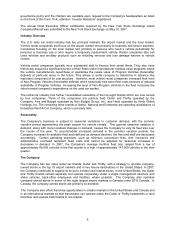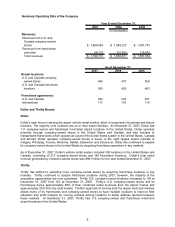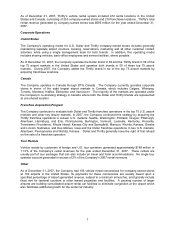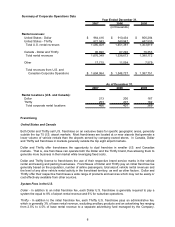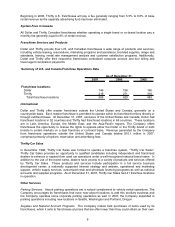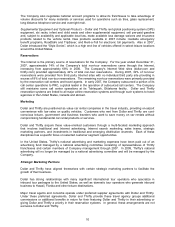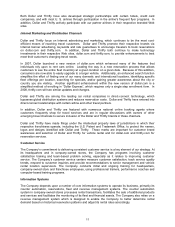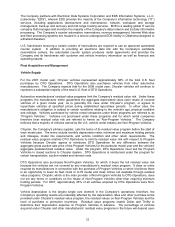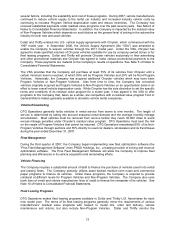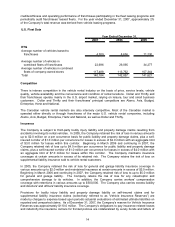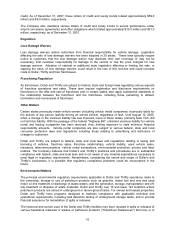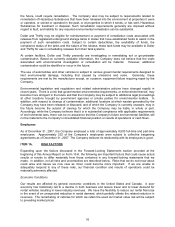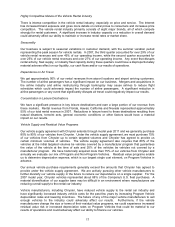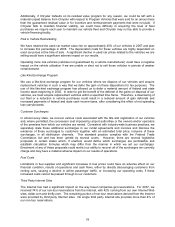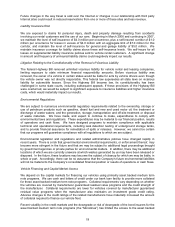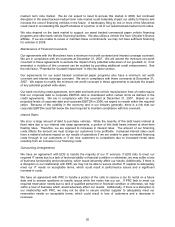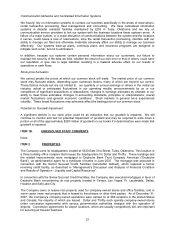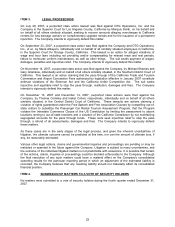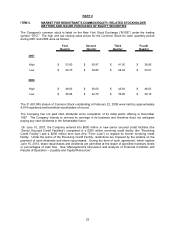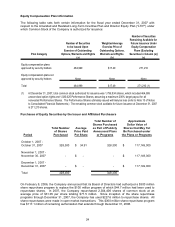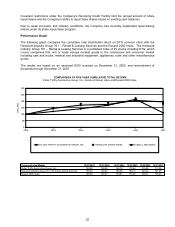Thrifty Car Rental 2007 Annual Report Download - page 23
Download and view the complete annual report
Please find page 23 of the 2007 Thrifty Car Rental annual report below. You can navigate through the pages in the report by either clicking on the pages listed below, or by using the keyword search tool below to find specific information within the annual report.credit. As of December 31, 2007, these letters of credit and surety bonds totaled approximately $59.0
million and $9.0 million, respectively.
The Company also maintains various letters of credit and surety bonds to secure performance under
airport concession agreements and other obligations which totaled approximately $10.0 million and $31.0
million, respectively, as of December 31, 2007.
Regulation
Loss Damage Waivers
Loss damage waivers relieve customers from financial responsibility for vehicle damage. Legislation
affecting the sale of loss damage waivers has been adopted in 25 states. These laws typically require
notice to customers that the loss damage waiver may duplicate their own coverage or may not be
necessary, limit customer responsibility for damage to the vehicle or cap the price charged for loss
damage waivers. Adoption of national or additional state legislation affecting or limiting the sale, or
capping the rates, of loss damage waivers could result in the loss of this revenue and could increase
costs to Dollar, Thrifty and their franchisees.
Franchising Regulation
As franchisors, Dollar and Thrifty are subject to federal, state and foreign laws regulating various aspects
of franchise operations and sales. These laws impose registration and disclosure requirements on
franchisors in the offer and sale of franchises and, in certain states, also apply substantive standards to
the relationship between the franchisor and the franchisee, including those pertaining to default,
termination and nonrenewal of franchises.
Other Matters
Certain states previously made vehicle owners (including vehicle rental companies) vicariously liable for
the actions of any person lawfully driving an owned vehicle, regardless of fault. Until August 10, 2005,
when a change in the vicarious liability law was imposed, some of these states, primarily New York, did
not limit this liability. With the passage of the federal "Highway Bill", unlimited vicarious liability for vehicle
rental and leasing companies has been removed, thus, limiting exposure to state minimum financial
responsibility amounts. Vehicle rental companies are also subject to various federal, state and local
consumer protection laws and regulations including those relating to advertising and disclosure of
charges to customers.
Dollar and Thrifty are subject to federal, state and local laws and regulations relating to taxing and
licensing of vehicles, franchise sales, franchise relationships, vehicle liability, used vehicle sales,
insurance, telecommunications, vehicle rental transactions, environmental protection, privacy and labor
matters. The Company believes that Dollar’s and Thrifty’s practices and procedures are in substantial
compliance with federal, state and local laws and is not aware of any material expenditures necessary to
meet legal or regulatory requirements. Nevertheless, considering the nature and scope of Dollar’s and
Thrifty’s businesses, it is possible that regulatory compliance problems could be encountered in the
future.
Environmental Matters
The principal environmental regulatory requirements applicable to Dollar and Thrifty operations relate to
the ownership, storage or use of petroleum products such as gasoline, diesel fuel and new and used
motor oil; the treatment or discharge of waste waters; and the generation, storage, transportation and off-
site treatment or disposal of waste materials. Dollar and Thrifty own 10 and lease 143 locations where
petroleum products are stored in underground or above-ground tanks. For owned and leased properties,
Dollar and Thrifty have programs designed to maintain compliance with applicable technical and
operational requirements, including leak detection testing of underground storage tanks, and to provide
financial assurance for remediation of spills or releases.
The historical and current uses of the Dollar and Thrifty facilities may have resulted in spills or releases of
various hazardous materials or wastes or petroleum products ("Hazardous Substances") that now, or in
15


